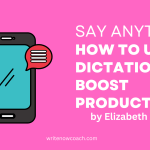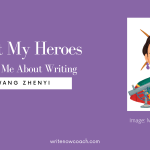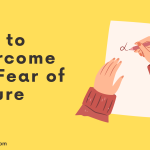How to Use Social Media to Research Writing Projects
In January, I took a social media fast on a bet with a friend (and we were only drinking coffee)! She chronicled her experience at The Write Now! Coach Blogs last Friday. You can read about my harrowing journey at her blog, Teamblood. And for those of you who love to play online, today’s tip teaches you how to use social media to rock your book and article research. Happy writing, Rochelle, the Write Now! Coach
 How to Use Social Media to Research Writing Projects
How to Use Social Media to Research Writing Projects
By Rochelle Melander
For most writers, social media disrupts our well-ordered life. Who has time to tweet and link and pin when we have queries to write and deadlines to meet? We need social media to build our platform. But finding the time to use it well and not get pulled down the proverbial rabbit hole can be challenging. (Okay, I’m talking about me here. Most of you probably have no trouble juggling book writing, tweeting, and facebooking. Me, I go on Pinterest to find a recipe for dinner and my husband finds me hours later, curled up in a corner of the sofa, drooling over brownie recipes.) The solution? Use social media as a research tool. That way, when we use social media we are both collecting useful information and increasing our social media platform. (At least that’s what I tell myself.) Here’s how:
1. Collect and organize. For years, I’ve used the Internet to research and gather information for writing blog posts, articles, and books. But I’ve struggled to organize the information I find online so that I can return to it when I am writing. No more! With the help of Pinterest, a social bulletin board site, I can now pin images connected to fascinating content from any web site I happen across. I’ve created thematic boards to help me manage the information I need for future blog posts and books (as well as some wonderful recipes and cool clothes). In addition, Pinterest is great for collaborative work—users can share bulletin boards, making it possible for a writing pair or group to pin articles and ideas to a single board. Note that Pinterest is a photo driven site, so it is hard to collect information from sites without photos.
2. Read, Collect, and Connect. Not a picture person? No worries. Visit ScribD, the online library site that allows users to read, collect, publish, and share documents and other written work. ScribD users can search for their subjects in documents, people, and the collections of other users. As on Pinterest, ScribD users can follow people who read or upload great information—expanding the scope of information they see. For me, ScribD has become a great place to review new research and collect it in one of my themed collections. Writers can also upload documents and receive feedback from other users.
3. Discover and Ask. Social media makes finding reputable sources easier than ever.
*Ask a question on Quora, a social media site built on the idea of asking and answering questions.
*Use Help a Reporter (HARO) to ask for sources on a specific project, usually a book or magazine article.
*Use the ANSWERS feature on LinkedIn (under the MORE tab) to ask questions of a wide audience of professionals. Answer questions to get featured as an expert.
*Ask questions of your followers at Twitter. If you use an appropriate hashtag, you will get answers from experts you don’t already know. And don’t be shy—if you’re hoping for a quote from a well-known expert, Tweet to them and see what happens!
4. Wander and Stumble. Do you prefer to research in a more haphazard, less organized fashion? One of my twenty-something clients got me hooked on StumbleUpon where you can literally “stumble” from one post to the next. As a “gotta-get-this-done” kind of girl, I wasn’t sure I’d like StumbleUpon—but I do! Clicking stumble feels a little like playing slots, and I always find something surprisingly useful. For those of you who need to travel outside their comfort zone, I highly recommend you take a spin at StumbleUpon. What do you have to lose?
5. Record, Review, Research, Connect. I was a member of Goodreads for over a year before I understood how valuable it is to writers. At the very basic level, use Goodreads to record what you’ve read, review books, and note the books you want to read. In addition, use the search functions to find quotes, books on a particular topic, or information about your favorite author. I like to read the reviews of books similar to ones I’m writing to get a sense of the market. Goodreads is also valuable for connecting with other authors and letting people know about your own books. Finally, check out the giveaways (under Explore) to enter contests and win popular books!
Create a plan to make social media a regular part of your research routine. The next time you spend hours surfing online, you won’t have to feel guilty. It’s research!
Your turn: What’s your favorite social media site for doing book or article research?














